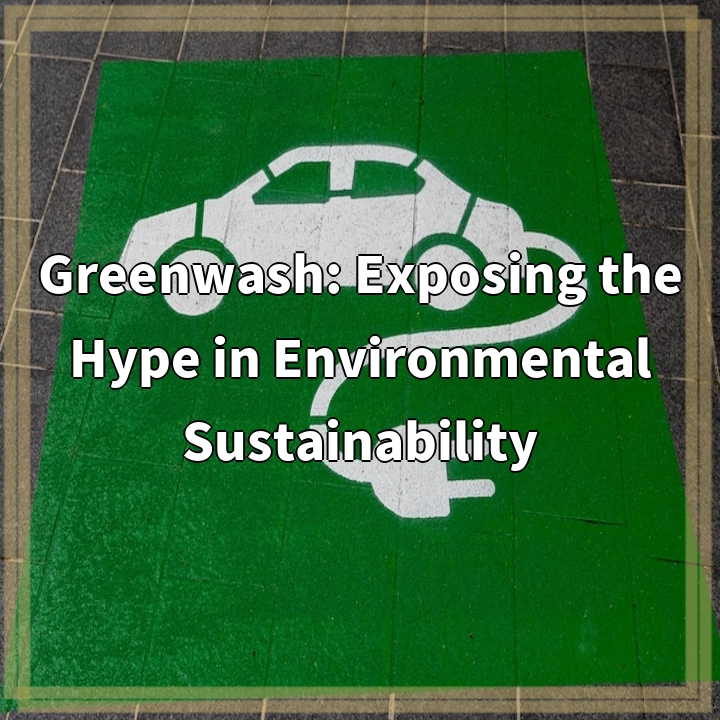
What is Greenwash?
Greenwash is a term that refers to the deceptive practices and strategies used by companies to present a false image of environmental sustainability. It involves misleading marketing and communication tactics that make products, services, or brands appear more environmentally friendly than they actually are. Greenwash can mislead consumers and create a false sense of eco-consciousness, ultimately undermining genuine sustainability efforts.
Real-World Problems with Greenwash
Greenwash presents several real-world problems, including:
1. Misleading Consumer Choices
By misrepresenting their products as eco-friendly, companies can confuse consumers who genuinely wish to make environmentally responsible choices. Greenwash can lead consumers to purchase items that they believe are sustainable but are, in fact, contributing to environmental harm.
2. Dilution of Genuine Sustainability Efforts
When companies engage in greenwashing practices, it dilutes the impact and significance of genuine sustainability efforts. By falsely claiming to be eco-friendly, these companies draw attention and resources away from those who are working diligently to make a real difference for the environment.
3. Lack of Accountability
Greenwash allows companies to avoid true accountability for their environmental impact. By creating a facade of sustainability, they can deflect criticism and scrutiny, making it more challenging for consumers, regulators, and environmental organizations to hold them accountable for their practices.
4. Undermining Trust and Credibility
Greenwashing erodes trust and credibility within the corporate sector. When companies make false claims about their environmental efforts, they risk losing the trust of their customers and stakeholders. This erosion of trust can have long-term consequences, damaging their brand reputation and hindering their ability to build authentic relationships.
5. Stifling Genuine Progress
Greenwash can create complacency, as companies that engage in deceptive practices may feel that they can continue business as usual, without making the necessary changes to become genuinely sustainable. This stifles the progress needed to address the pressing environmental issues we face today.

Solutions to Greenwash
Addressing greenwash requires a collective effort from consumers, businesses, and regulatory bodies. Here are some solutions to combat greenwashing:
1. Education and Awareness
Empowering consumers with knowledge about greenwashing tactics is crucial. Education can help individuals identify misleading claims and make informed choices, supporting genuinely sustainable products and companies.
2. Transparent and Accurate Labeling
Clear and standardized labeling can help consumers understand the true environmental impact of products. Creating consistent guidelines for eco-labels and certifications helps reduce confusion and ensures transparency.
3. Independent Verification and Certification
Evidence-based certification systems and independent audits play a vital role in verifying companies’ environmental claims. Third-party verification enhances credibility and holds businesses accountable for their sustainability efforts.
4. Strengthening Regulations
Regulatory bodies need to strengthen and enforce regulations around green marketing claims. Stricter guidelines and penalties for deceptive advertising can discourage greenwashing practices and promote accurate communication.
5. Corporate Responsibility and Accountability
Companies must take responsibility for their environmental impact and avoid misleading claims. Implementing genuine sustainability practices, conducting life-cycle analyses, and reporting transparently on performance helps build trust and accountability.
6. Consumer Choice and Support for Genuine Sustainability
Consumers have the power to influence corporate behavior through their purchasing decisions. Supporting genuinely sustainable products, brands, and businesses sends a strong message to the market, encouraging more ethical and responsible practices.
7. Collaboration and Industry Standards
Collaboration among industry stakeholders, including businesses, NGOs, and governments, can drive the development of industry-wide sustainability standards, reducing the opportunity for greenwash. Sharing best practices and knowledge fosters collective progress in sustainability.















